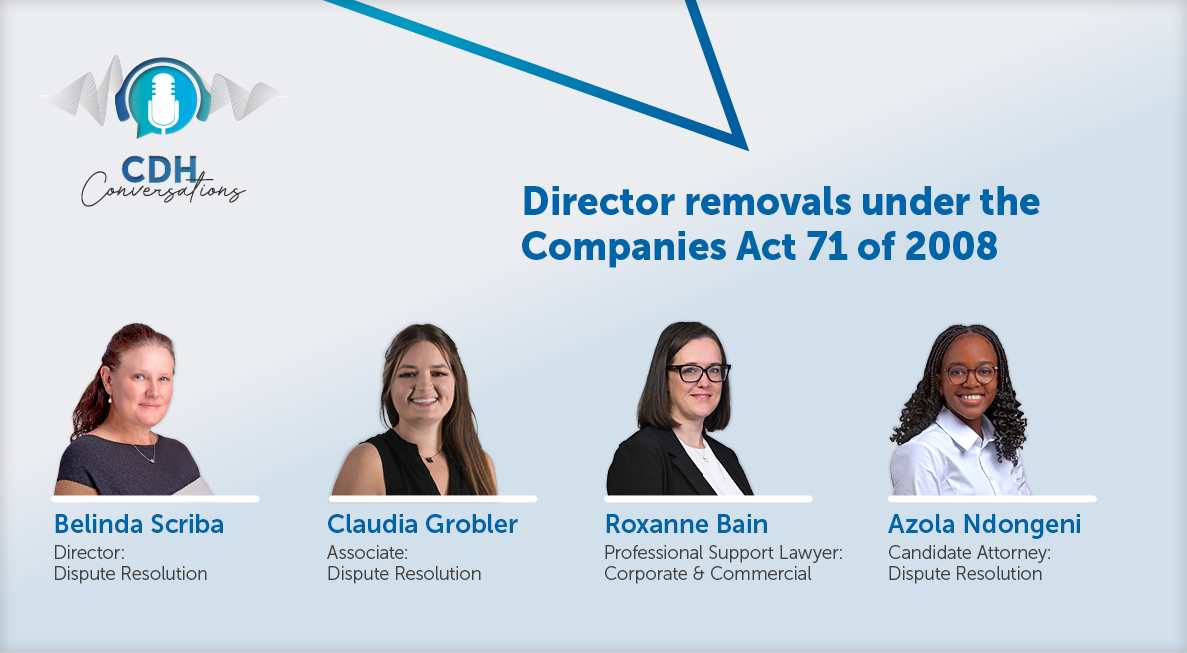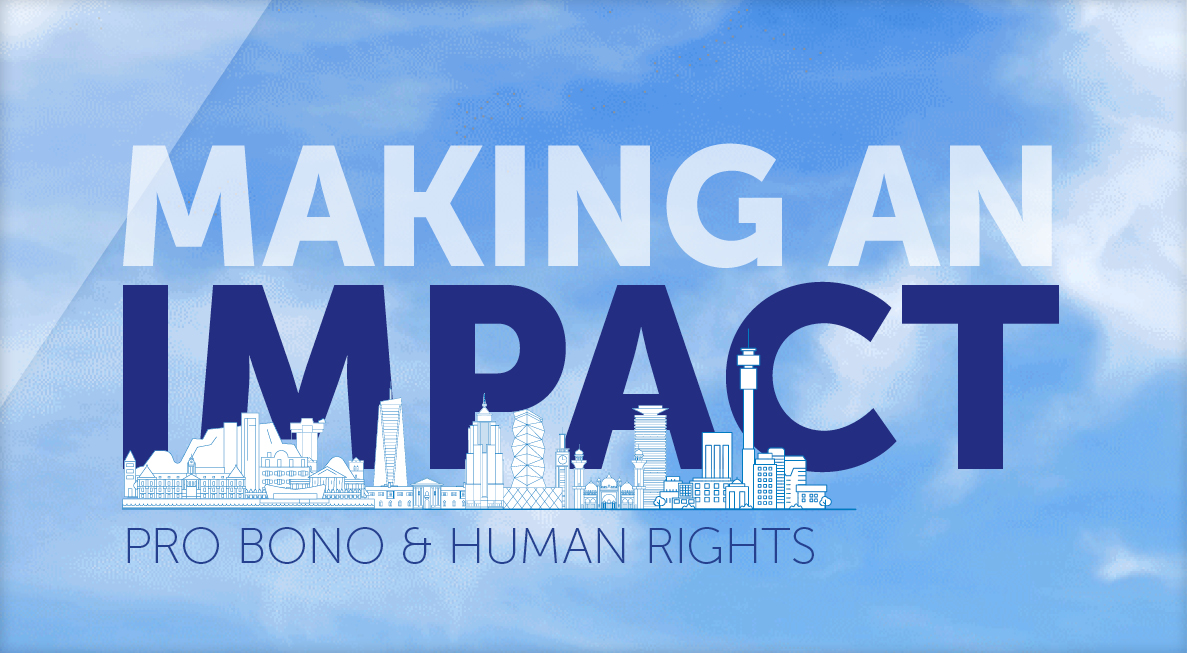Capacity building and fostering expertise in international arbitration in Africa
At a glance
- The Africanisation of international arbitration requires efforts to continue to build capacity and foster talent and expertise.
- This applies to arbitrators, lawyers, experts, judges, governments, and users of arbitration across the continent and can be achieved through a number of initiatives.
- Improving capacity and fostering talent and expertise in international arbitration is not a one-way street. To be truly international, the international arbitration community must incorporate, rather than impose, and integrate Africa's unique perspectives and ways of working as part of a global and collaborative capacity building exercise.
The under-representation of African individuals in proceedings is partially attributable to a precepted or real lack of expertise and experience. Consequently, the Africanisation of international arbitration requires efforts to continue to build capacity and foster talent and expertise. This applies to arbitrators, lawyers, experts, judges, governments, and users of arbitration across the continent through the initiatives and ideas considered below.
Diversity of tribunals
Practical case experience is essential in building capacity and confidence in the abilities of African practitioners. This necessitates the expansion of opportunities to a more diverse pool of arbitrators, legal counsel, and experts in terms of ethnicity, age, and gender. Greater diversity will also improve the quality of the decision-making process, allowing the tribunal to make decisions in the context of the relevant cultural, social, religious, and legal perspectives.
Understandably clients and their lawyers want to appoint good quality arbitrators who are best placed to determine the dispute. This could dissuade the appointment of more diverse arbitrators if they are perceived to lack sufficient expertise or experience. To address this and to achieve greater diversity, focus should be on:
- the preparation and promotion of accessible and detailed lists of appropriately qualified arbitrators and experts; and
- the proactive and open-minded consideration of such lists when appointing arbitrators.
In respect of the former, valuable strides have already been made, such as the Arbitration Foundation of Southern Africa-South Africa Development Community (AFSA-SADC) Panel of International Commercial Arbitrators. These lists should contain details of the experience, expertise, training and education of arbitrators. This could include a formal standardised accreditation to demonstrate candidates’ abilities and capacities to the client. As capacity and experience continue to build, such lists will become longer.
In respect of the latter, it will take time and patience to achieve the necessary shift in perceptions by lawyers and their clients, especially those who demonstrate a preference for non-African arbitrators. It is hoped that this shift can be expedited by:
- Drafting arbitration clauses that African arbitrators are more likely to be well-qualified for, such as those subject to an African applicable law or seated in Africa. For contracts governed by English law but concerning projects in Africa, dual-qualified arbitrators will be especially well-placed.
- Publication of transparent information about arbitrator demographics and the number of repeat appointments. This will promote awareness encourage reflection and accountability in selecting arbitrators and provide a way to quantify progress towards achieving greater diversity.
- Recognising the personal and relationship-driven nature of international arbitration appointments. This involves a continued focus on maintaining such and building relationships (for example ‘Meet the Arbitrator’ networking sessions).
Sharing expertise
African jurisdictions have already entered into a number of innovative and mutually beneficial initiatives to pool and share expertise and best practice. This includes sharing expertise from not only non-African established arbitral jurisdictions, but also from well-established pro-arbitration African jurisdictions such as Kenya. Kenya’s Chartered Institute of Arbitrators branch was first established 40 years ago in 1984 and the Kenyan Arbitration Act has been based on the UNCITRAL Model Law since 1995. These initiatives can be replicated and developed. For example:
- At JAW a landmark moment was reached with the signature of the AFSA-SADC Alliance Charter. This will transform arbitration in SADC by establishing a standardised framework for arbitration practice across the region and providing for the sharing of expertise.
- Collaboration between dispute resolution centres. For example, in March 2024 the Nairobi Centre for International Arbitration, the Cairo Regional Centre for International Commercial Arbitration, the Kigali International Arbitration Centre (KIAC) and the Hamburg Chamber of Commerce signed a memorandum of understanding to enhance visibility and the growth of arbitration in Africa.
- Initiatives led by international centres such as the conferences and training delivered by the International Chamber of Commerce’s (ICC) Africa Commission, with the stated objective of building capacity of African practitioners. The commission includes members from 16 African countries.
- Collaboration between law firms both in and out of Africa in formal and informal partnerships and secondments. This includes proper and open co-counsel relationships where lawyers work as genuine and respected partners to advance client interests, sharing and pooling experience and ideas from their respective jurisdictions.
Availability of materials
Capacity building can also be greatly facilitated by ease of access to relevant materials. This includes:
- Legislation and arbitration related court decisions: In some jurisdictions there is limited access to free, high-quality and up-to-date sources of legislation, regulation or court judgments. This can inhibit capacity building as practitioners may not be aware of all relevant requirements or recent decisions. Databases like Laws.Africa should be funded and promoted to make essential foundational legal information available.
- Arbitration awards: While giving appropriate deference to the confidentiality of arbitration, greater transparency and the publication of anonymised awards is also a valuable tool in capacity building. This could help demonstrate effective conduct of proceedings and confirm how tribunals make decisions. Arbitral institutions may consider exercising some of their discretion or powers to publish anonymised awards to facilitate that objective. For example, AFSA has discretion to publish awards unless a party objects. The inclusion of such awards in the International Council for Commercial Arbitration’s Awards Series would help promote and expand African arbitration capacity as well as promote such capabilities outside Africa.
- Arbitral centre statistics. Similar to the London Court of International Arbitration’s Annual Report, arbitral centres could assist capacity building by publishing comprehensive statistics about the cases they oversee, including details of case numbers, challenges to arbitrators and requests for interim relief. This data enables practitioners to assess important aspects of the arbitration process such as time and cost. This could both expand knowledge and improve confidence in the process as well as showcase the excellence and experience of the centres.
Training and education
Advances in technology and virtual learning have significantly improved the accessibility of online learning, often at a cheaper cost. Institutions like the African Arbitrational Academy, AFSA and Chartered Institute of Arbitrators (CIArb) branches across Africa (of which there are three in Nigeria alone) already offer regular virtual and in-person training sessions to young lawyers, the judiciary and other practitioners, including routes to CIArb membership and the ICC’s Advanced Arbitration Academy taking place in a number of African cities throughout 2024 and 2025.
Many educational institutions already offer formal training such as LLMs in International Arbitration, but this is not available in every country.
Such initiatives and training should be funded and expanded, including by means of international collaborative programmes, and practitioners should be encouraged to make full use of such opportunities.
Conclusions
Continuing to foster talent and expertise in African arbitration requires a long-term vision but there are strong existing foundations to build on. Academic dedication and training are valuable but there is no substitute for real-life practical experience.
Governments can also play a role in securing opportunities for that experience. For example, following Rwanda’s lead in requiring that the KIAC is selected for arbitration agreements involving a public entity. Similarly, the African Arbitration Academy’s Model BIT provides for the appointment of arbitrators of African descent in its dispute resolution clauses, and for the selection of a seat in Africa.
Improving capacity and fostering talent and expertise in international arbitration is not a one-way street. To be truly international, the international arbitration community must incorporate rather than impose, and integrate Africa’s unique perspectives and ways of working as part of a global and collaborative capacity building exercise.
The information and material published on this website is provided for general purposes only and does not constitute legal advice. We make every effort to ensure that the content is updated regularly and to offer the most current and accurate information. Please consult one of our lawyers on any specific legal problem or matter. We accept no responsibility for any loss or damage, whether direct or consequential, which may arise from reliance on the information contained in these pages. Please refer to our full terms and conditions. Copyright © 2025 Cliffe Dekker Hofmeyr. All rights reserved. For permission to reproduce an article or publication, please contact us cliffedekkerhofmeyr@cdhlegal.com.
Subscribe
We support our clients’ strategic and operational needs by offering innovative, integrated and high quality thought leadership. To stay up to date on the latest legal developments that may potentially impact your business, subscribe to our alerts, seminar and webinar invitations.
Subscribe




